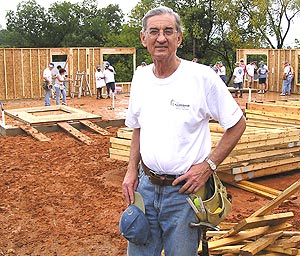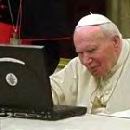 When we think of the most important religious figures in the last century, we tend to think of official denominational leaders (the Popes), famous evangelists or preachers (Billy Graham, Rick Warren, Norman Vincent Peale) and maybe some theologians (Reinhold Niebuhr, Walter Raushenbush, John Stott).
When we think of the most important religious figures in the last century, we tend to think of official denominational leaders (the Popes), famous evangelists or preachers (Billy Graham, Rick Warren, Norman Vincent Peale) and maybe some theologians (Reinhold Niebuhr, Walter Raushenbush, John Stott).
Millard Fuller, who died this week, should be on the list. Fuller was the founder of Habitat for Humanity and one of the most effective advocates for faith expressed through action — what he called the “theology of the hammer.”
“Faith must be incarnated,” he said. “Faith must become more than a verbal proclamation or an intellectual assent. True faith must be acted out.”
Habitat has built 300,000 houses, helping more than 1.5 million people since 1976 — not including the millions of volunteers who’ve benefited from the experience. Habitat is now in all 50 states and 90 other countries.
Part of what made it so powerful was the model: the recipients of the assistance worked alongside the volunteers. The homeowners purchase the houses at cost, and the mortgage payments help finance new Habitat projects. This made it seem like a helping hand, not charity or welfare.
Habitat therefore “literally revolutionized the concept of philanthropy,” President Clinton said when giving the Presidential Medal of Freedom (the highest civilian honor). It was a favorite of Jimmy Carter…and Newt Gingrich.
A millionaire entrepreneur, Fuller sold his possessions, gave his money to the poor and joined a Christian community in the 1970s. In Africa, he developed the model that he would bring to America through Habitat for Humanity.
There’s no question it is a faith-based mission — volunteers begin the day in prayer — but the premise is that faith expression through deeds rather than action serves as the best witness of all.
“I was looking for a way in my life to please God,” he once said.
Perhaps he’s discovering this week that he fuflilled his mission.
More from Beliefnet and our partners

